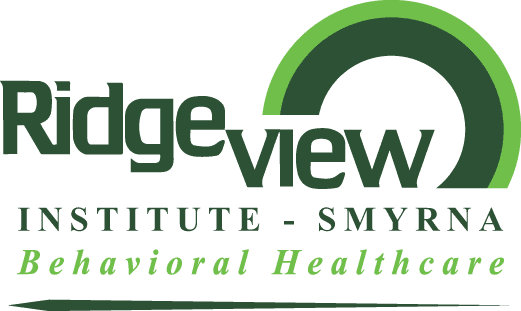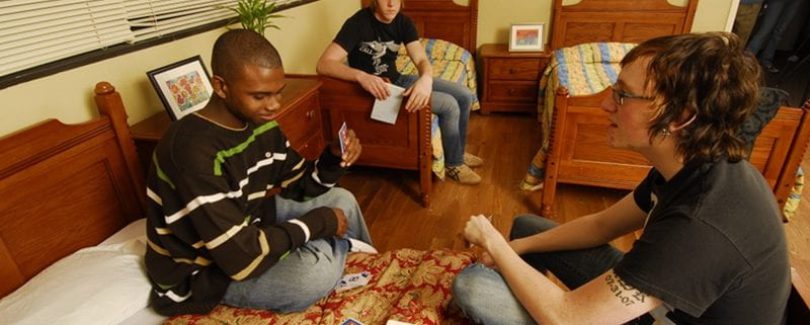Michael Fishman, M.D. and Lori Albert-Walker, MSW
The Young Adults Program at Ridgeview Institute was created to address unique and specific issues in the lives of young people suffering from the disease of addiction. We define this population from ages 18 to 26, though patients ages 17 to 30 may also be considered for this track. As with all programs in Adult Addiction Medicine, family therapy is an integral component. Dual-diagnosis issues must also be given careful consideration. The passage from youth to adulthood can be difficult enough without the complications of chemical dependency.
Connecting with the young adult is a critical component in gaining trust in the therapeutic relationship. Young adults will respond best to a straight-forward, respectful but firm approach from a therapist. They can perceive subterfuge or general discomfort if one is attempting to be too much of a peer. It is important to maintain boundaries with the patient and his/her family. This can be challenging since often there are issues of enmeshment as well as hostile family dynamics. There is an interplay between the need for disclosure with the families vs. the patient’s need for privacy. There may be a history of parental drug use with their son or daughter. Cases of parental sabotage are not uncommon, some being more overt than others. It is important to educate patients and family members around their dynamics, recurrent patterns and potential for sabotage. Recovery may truly disrupt the status quo.
Treatment begins with containing all of the addictive behaviors. This not only includes alcohol and chemical dependencies but also eating disorders, sexual disorders and pathological gambling. This may include an inpatient detox. It is not uncommon for the young adult to experience post-acute withdrawal symptoms while in a partial hospitalization level of care. Living in a recovery residence offers added support and structure. A level system and therapeutic community sensitive to the needs of the young person is helpful. People of this age crave firmer limits to keep them safe though they often will protest with vigor.
It is important to recognize dual diagnosis issues. Effects of drug and alcohol use may mimic or precipitate underlying psychiatric disorders. Long term memory and concentration deficits are frequently seen with ecstasy and crystal methamphetamines/ ice. The jury is still out as to how long these effects may last. The atypical neuroleptics (Risperdol, Seroquel, Zyprexia, Geodon, and Abilify) may be especially useful with disorganizing anxiety, aggressiveness, delusions, and extreme irritability. Of course, one must weigh the potential side effects of these medications with the potential benefits.
Transference and countertransference need to be recognized when working with the young adult and their families. This can be used to the therapist’s advantage or interfere with the therapeutic relationship if not identified. In a safe and supportive environment, the patient should be allowed to explore these feelings and develop new ways to deal with authority.
Conversely, in recognizing their own feelings the therapist will be able to better serve the patient. Patients need education about appropriate ways to express their feelings. Respect for self and others is stressed as well as constructive assertion of needs. Therapists working with young people often find themselves feeling frustrated, agitated, intimidated or overly sympathetic. It is helpful to process these feelings in supervision or with co-workers. Common themes which may be identified are: “I was never like that and I can’t believe how they behave.” “I was just like that and in fact I still smoke pot and drink.” “Teenagers were cruel when I was young and I still feel intimidated by people of this age.” “My son/ daughter is your age and I fear she may feel the same way or may wind up in the same situation and it scares me.” Through recognizing and processing these feelings it will be easier to separate and keep the internal and external reactions down allowing the young person to look at themselves.
Normal development stops when someone starts bonding to chemicals. Patients describe feeling they are back in junior high, reliving puberty. They express feeling a lot of anxiety in social situations, as well as shame and guilt associated with past relationships. They are relieved when educated about this and respond well to containment around pairing off and guidance toward healthy relationships. If young people are using drugs to quell disquieting emotions and to deal with normal interpersonal anxieties about dating and peer pressure, they never learn to deal with those issues. It is recommended that young people abstain from romantic relationships for one year and that dating not begin prior to 6 months clean. During the dating period great work can be done in therapy.
It is crucial to consider normal physical, emotional and mental adolescent development when trying to understand the delays caused by chemical dependency. Often the young person is still feeling self conscious about physical changes that occurred in puberty. Patients relate that they never really learned about sexuality. They describe acting out sexually without any exploration or development of a self concept i.e. values, morals and intimacy. Mentally they may still demonstrate more concrete thinking affecting decision-making and problem solving skills. They struggle with delaying gratification and frustration tolerance and don’t see the relationship between cause and affect. A 13 to 15 year old has no time measurement; using and the lifestyle perpetuates this behavior.
Support must be given to assist in correcting the developmental process and raising the chances for success as the young person transitions out of treatment. Patients express feeling overwhelmed with transition tasks. A transition group is provided to guide the patient with return to work or school issues, making appointments with individual therapists etc. Patients are introduced to the Young Adult Aftercare group and the Alumni group prior to discharge. Referral to a recovery residence provides a safe, structured environment to continue on the path toward separation-individuation.
The peer group is the most important component in assisting in the development of autonomy and individuation. At Ridgeview Institute, patients are separated by gender in therapy groups and combined for other age-specific psycho- educational and team building groups. A peer assessment group allows patients to give and receive anonymous feedback to each other regarding their progress in treatment. 12-step meetings and sponsorship are stressed. Patients in treatment are connected to alumni and young people in the recovering community who speak monthly about sober living and take patients to young peoples meetings. This is crucial as patients feel like “fish out of water” when trying to connect socially in meetings. Education on the disease concept and cross addiction are essential. Patients respond well to self assessments in determining whether or not they meet criteria for chemical dependency. A four day family workshop offered monthly provides the opportunity for patients and families to express feelings and learn about addiction and recovery. Prospects for recovery are good if young adults are abstinent, develop cognitive and visceral understanding of addiction, and begin to take initiative in their lives.
Through the years, we have searched for resources that would provide support for young people in recovery who are also pursuing their education. The following are two very helpful resources for sober support on college campuses: www.recoveryschools.org and Dr. Carl Andersen, Center for the Study of Addiction, Texas Tech University, Box 41162, Lubbock, Texas 79409.
For more information about Ridgeview’s Young Adult Program, visit our website at https://ridgeviewinstitute.com/ or contact the Access Center at (770) 434-4567.
Michael L. Fishman, M.D. has been in private practice with Earley Associates, P.C. since 1990 specializing in addiction medicine, anorexia nervosa and bulimia treatment, and the treatment of nicotine dependence. Dr. Fishman has presented on numerous topics concerning addiction and nicotine dependence, as well as having authored or co-authored several articles for industry publications.
Lori Albert-Walker, MSW is a Case Management Coordinator with the Ridgeview Young Adult Addiction Program. She has been with Ridgeview for 11 years and was instrumental in the development of the young adult addiction treatment track at Ridgeview Institute. Lori is also a talented songwriter and musician, often displaying this talent for the pleasure of staff and patients alike.
This article is the property of and was originally published in the Ridgeview Quarterly Newsletter entitled A View From The Ridge, November 2003.

